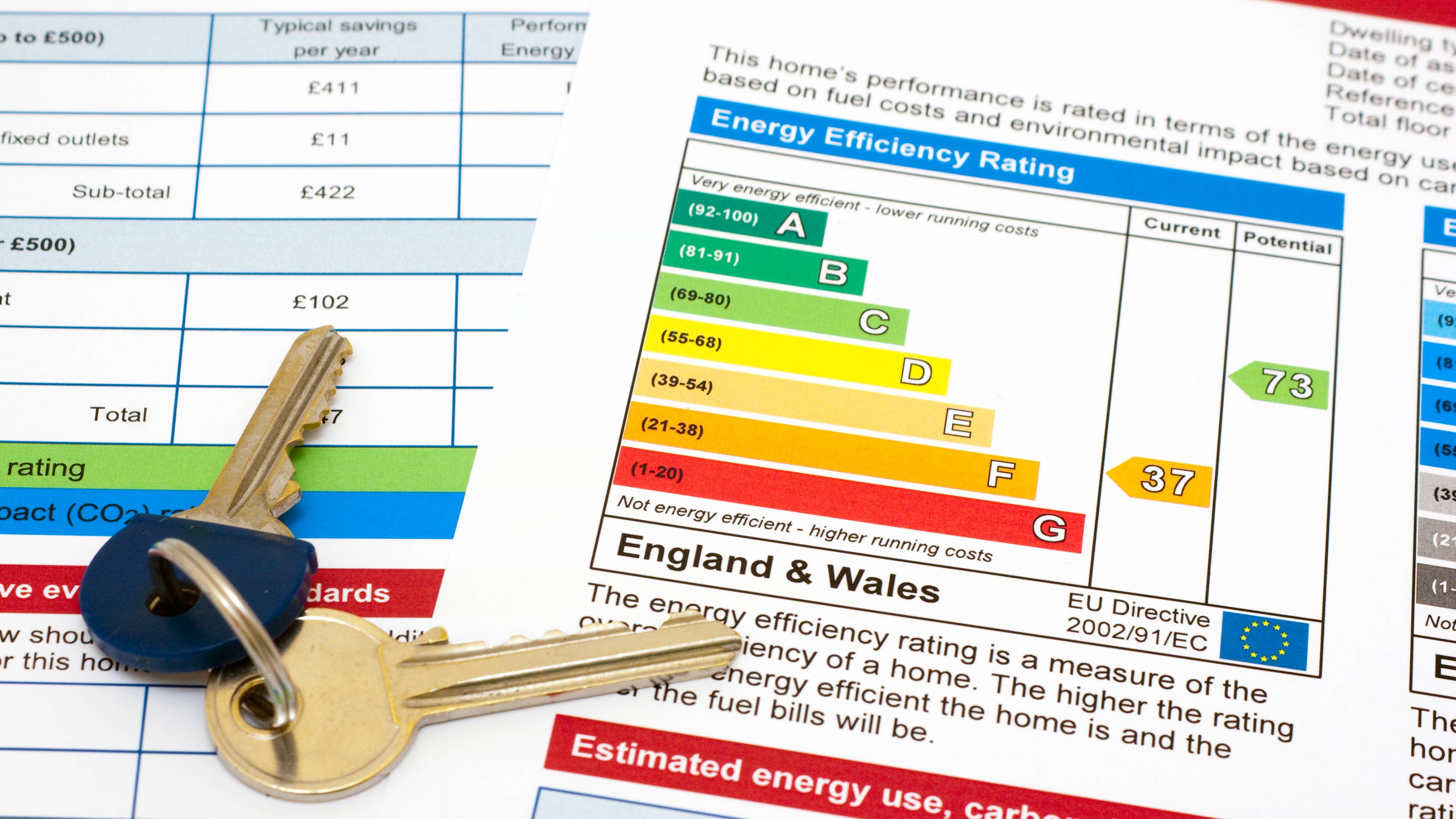What is my home's energy rating and why do I need to know it?
If you are asking 'what is my home's energy rating?' our guide explains everything you need to know about energy performance certificates and why you need one

Bring your dream home to life with expert advice, how to guides and design inspiration. Sign up for our newsletter and get two free tickets to a Homebuilding & Renovating Show near you.
You are now subscribed
Your newsletter sign-up was successful
The most common time people start asking 'what is my home's energy rating?' is when they decide to move on and sell their property. This is because in order to sell your house or flat you will need to be able to show an energy performance certificate (EPC).
While a house sale usually prompts people to organise an EPC to be issued, they can be quite useful when it comes to understanding how your home is currently performing and also help you get to grips with some energy saving tips. The certificate will highlight any energy efficiency improvements that could be made, as well as how much these upgrades will cost — plus they detail how much you could save by carrying them out.
Here, we take a look at what EPCs are, what it will cost you to get one and how to understand the results.
What is an EPC?
The acronym 'EPC' stands for Energy Performance Certificate. EPCs set out how energy efficient a building is and will rate your home from A to G. An A rating indicates a home that is extremely efficient while G ratings are given to very energy inefficient buildings.
An EPC will explain how expensive your home will be to run, along with what its carbon dioxide emissions are likely to be.
In addition, EPCs give you data regarding the 'potential' energy efficiency rating you could expect, were you to carry out the suggested improvements, along with inexpensive methods of attaining a higher rating.
They are also useful in that they provide you with your estimated energy costs as well as any potential savings you could make by carrying out the improvements suggested.
Bring your dream home to life with expert advice, how to guides and design inspiration. Sign up for our newsletter and get two free tickets to a Homebuilding & Renovating Show near you.
How can I improve my EPC rating?
There are a couple of primary reasons why you might want to improve your home's EPC rating. Firstly, it could save you money in the long run when it comes to your household bills. Secondly, the better your EPC rating, the more appealing it could be to potential buyers when you come to sell it. You may also be looking at improving it if you're wondering how to work out your energy needs and choose the right renewables.
There are several steps usually suggested as ways of upping your rating, including:
- Installing double glazing: Switching single glazing for double glazing will have a significant impact on the comfort levels of your home as well as its energy rating.
- Adding insulation: Increasing the amount of insulation you have in your loft, floors and walls is often a suggestion given on an EPC.
- Switching to low-energy light bulbs: This is a cheap yet effective way to save money and energy.
- Introduce eco features: Incorporating features such as solar panels can give your EPC a real boost.
- Consider a new boiler: Old, inefficient boilers are going to do nothing for your EPC rating. If you have a G-rated boiler, upgrading it to an A-rated condensing boiler with a programmer, room thermostat and TRVs could save you £445 per year in a gas-heated home in England, Scotland and Wales, according to Energy Saving Trust.

How do I get an EPC?
If you didn't get a copy of your EPC when you bought your home (use the free EPC Register to see whether there is one in existence), you can still get your hands on one.
By using the EPC Register you can arrange for a property assessment to be carried out — alternatively, if you are putting your house on the market, you might find that your estate agent will be able to arrange this for you.
It is worth noting that EPCs expire after 10 years.
How much does an EPC cost?
There is not a set price for EPCs — different providers will charge different amounts for inspecting your home and issuing a certificate.
Factors that will influence what you pay for an EPC include the size of your property, where in the country it is located and who you choose to carry out the assessment. You could expect anything from £35 right up to £120.
Natasha was Homebuilding & Renovating’s Associate Content Editor and was a member of the Homebuilding team for over two decades. In her role on Homebuilding & Renovating she imparted her knowledge on a wide range of renovation topics, from window condensation to renovating bathrooms, to removing walls and adding an extension. She continues to write for Homebuilding on these topics, and more. An experienced journalist and renovation expert, she also writes for a number of other homes titles, including Homes & Gardens and Ideal Homes. Over the years Natasha has renovated and carried out a side extension to a Victorian terrace. She is currently living in the rural Edwardian cottage she renovated and extended on a largely DIY basis, living on site for the duration of the project.

